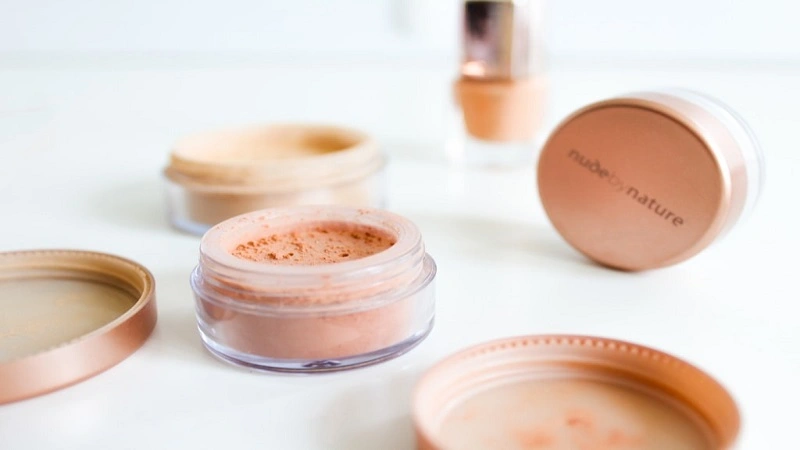The cosmetic sector has been a phenomenal change within the last ten years, owing to the blistering technological improvement. Modern technologies are transforming the development, production, and delivery manner of products to consumers in the laboratory up to the retail shelf. Automation, formulation science, and quality control innovations do not only make production a streamlined process but they also make the products safer and more effective. In this dynamic environment, producers are exploiting these developments to do justice to the increasing consumer needs of high quality, sustainable, and innovative cosmetics.
Developments in Laboratory Research and Development
The research and development (R&D) laboratory is the core element of cosmetic innovation. The present day cosmetic labs have significantly high-quality analysis tools that enable chemists to scrutinize components on a molecular scale. Such methods as mass spectrometry, high-performance liquid chromatography (HPLC), gas chromatography, and high performance liquid chromatography allow measuring active compounds accurately. These tools enable the manufactures to develop products with a consistent performance and at the same time meet stringent regulatory demands.
Automation has been able to transform laboratory processes too. Monotony work through robot systems has already begun with mixing, dispensing and sample preparation which implies less human error and shortens length of development cycle. Insuring stability in formulations, forecasting ingredient mixes, and modeling the behavior of products in different circumstances are rampantly predicted with the aid of artificial intelligence (AI) and machine learning. The technologies assist cosmetic scientists to be more innovative in less time and can guarantee the effectiveness and safety of their products.
Modern Production Technology- Streamline the Production
After formulation has been made perfect, manufacturing is the next thing. The current cosmetic manufacturing plants combine the use of sophisticated equipment and automated production lines to create large quantities of products precisely. Robotic filling machines, conveyor belts and packaging robots mean that all containers are filled properly and sealed, this reduces wastage and contamination.
Monitoring of a process and quality in real-time has turned into an essential part of contemporary manufacturing. During production, sensors and programs monitor the temperature, pH, and viscosity among others. This incessant tracking enables the manufacturers to identify nonconformities as they occur such that no batch will be produced below the expected quality levels.
Ados is an industry leader in the cosmetics sector and it has been known to take its quality and innovation as a priority. Being one of the manufacturers of polish cosmetics manufacturer, Ados is able to incorporate innovative technology with extensive knowledge of formulation and production. The company has very diverse services including product development services, large-scale-manufacturing services, serving the established brands and the upcoming entrepreneurs. They have won the confidence of customers in the international cosmetic market through their commitment to accuracy, continuity, and satisfaction.
Adopting Sustainable and Environmentally Friendly technologies
Modern cosmetic manufacturing has taken sustainability as one of its key concerns. Manufacturers are also shifting to environmentally friendly technologies in order to mitigate the environment. These involve use of biodegradable packaging, production processes, consumption of water and power-consuming machinery. Moreover, new developments regarding ingredients supply, including the use of bio-based substances and raw materials collected in a responsible manner, contribute to the minimization of the ecological footprint of cosmetic products.
The sustainability of digital technologies is also supported. The sophisticated software systems are used to monitor the utilization of raw materials, power sources, and waste within the production chain. This factual solution can enable businesses to streamline operations, reduce wastage of resources, and create more sustainable procedures in their businesses.
The Position of Automation and Industry 4.0
The revolution of Industry 4.0 changed the ways of production in the cosmetic industry by bringing smart technologies into the production premises. Real-time monitoring and foreseeable maintenance by use of Internet of Things (IoT) devices, machine learning, and automated control systems are possible. These innovations save time, enhance efficiency and customer product quality is low.
Packaging as well as labeling has also been increased with the use of robotics and automation. Complicated designs and variable information can be conducted using automated labeling machines, and this lowers mistakes, as well as shortening production schedules. The conveyor systems are smart and make the flow of the materials smooth, and the defects are indicated before the product reaches the market in automated inspection stations.
Quality Control and Conformity
In cosmetic production quality assurance is one of the pillars. At present, modern technologies also allow providing more strict and effective quality control measures. Non-destructive methods of testing, digital imaging, and highly sensitive spectroscopy are some of the methods that can be used to carefully gauge product integrity without the destruction of samples.
Adherence to legal regulations is also important. Manufacturers are subjected to regulations of ingredient safety, labelling and claims. This process is made possible by technology which allows documentation on a digital basis and batch tracking, traceability throughout the lifecycle of production. This effectively safeguards the consumers, as well as builds on the reputation and credibility of cosmetic brands.
The Future Technology of Cosmetics
Even greater innovation is in store in the future of cosmetic manufacturing. AI-guided and genetic-profiling products like personalized cosmetics based on their skin type and preferences will find a probable following, with the technology of the 3D printing able to be used to create custom shapes of products, texture, and packages.
Also, virtual reality (VR) and augmented reality (AR) are improving the experience of consumers, as now they could enjoy an opportunity to try out their products virtually and buy them. The technology of blockchain is also becoming a means of transparency as it allows the brands to have certifiable data regarding the source of ingredients, manufacturing procedures, and sustainability statements.
